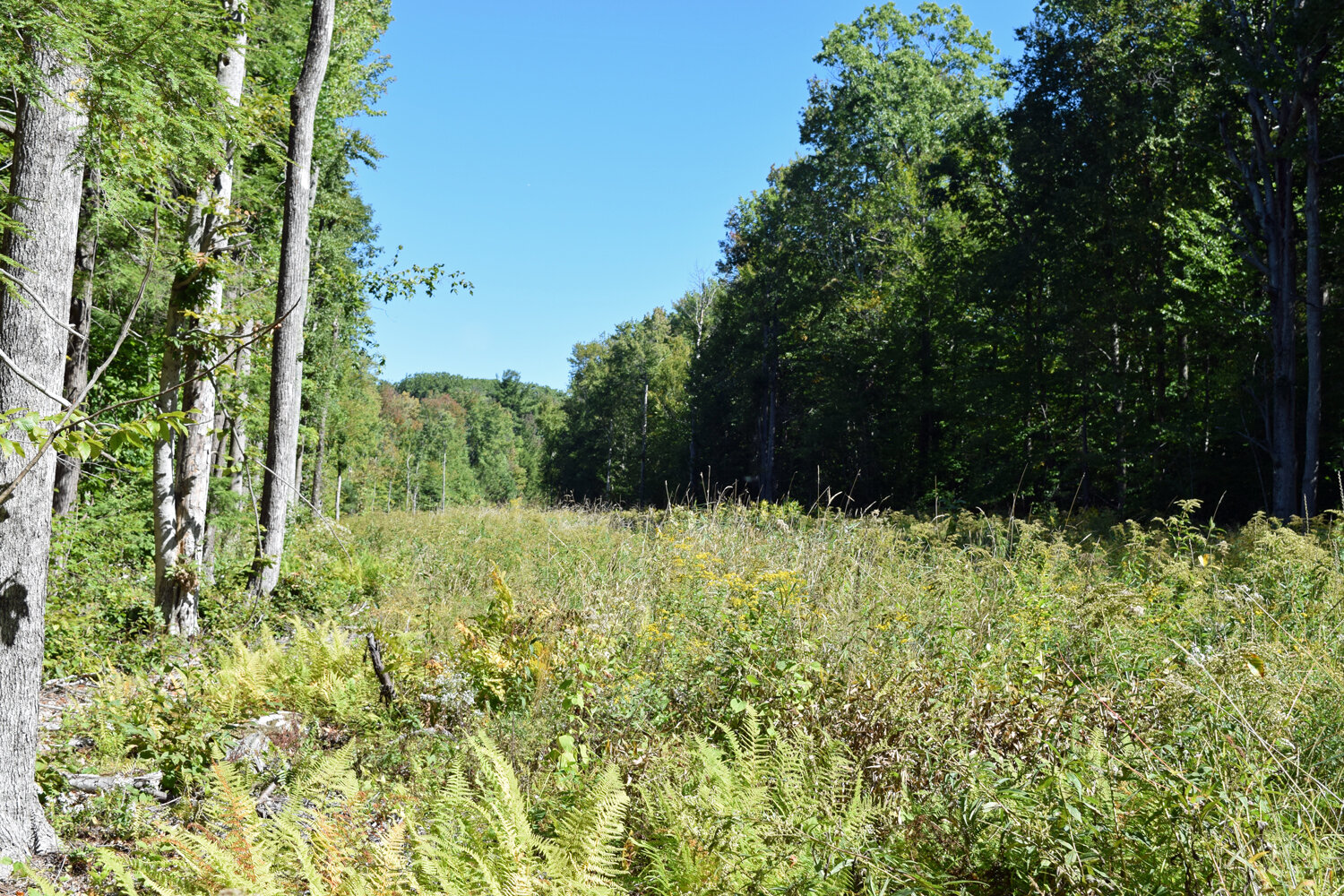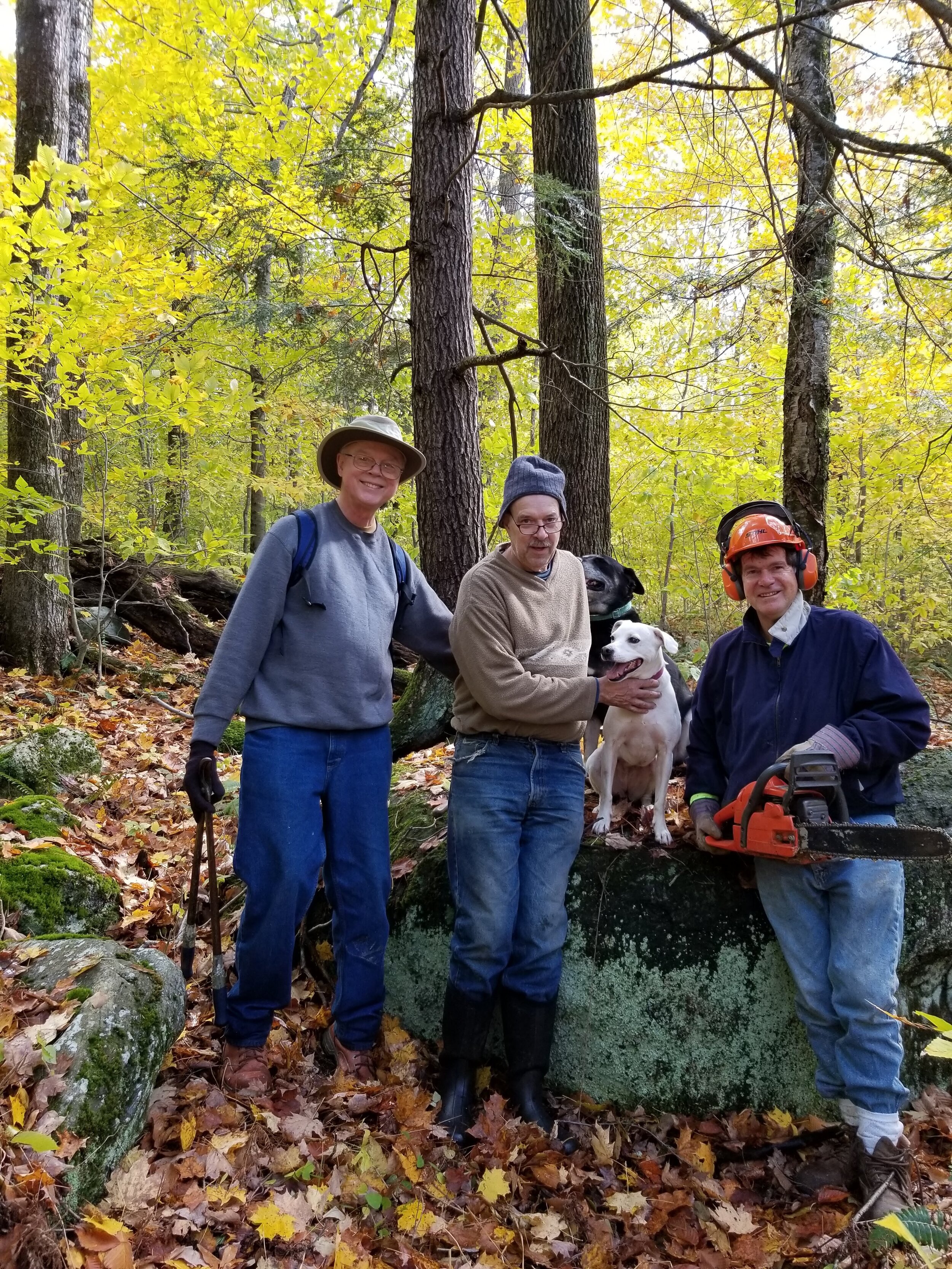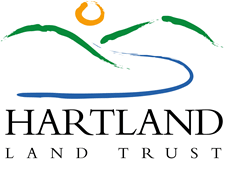The Charles and Lois Beach Preserve




The Beach Preserve is Closed to the public until further notice,
due to hazardous ash tree conditions on the property near the trails.
The Charles and Lois Beach Nature Preserve is a 47-acre parcel on Hi-View Road in West Hartland. It was given to HLT in 2011 by Jeffrey W. Beach, Sr. in honor of his parents. His father, Charles Beach, moved the family to the Hartland property after he began to do flood restoration work in the area following the devastating 1955 flood. Jeff Beach and his brother enjoyed exploring the area as young boys; in the spring 2011 issue of HLT’s newsletter, The Preservationist, he wrote: “As boys, we learned that we could never get lost for long, not even on all that land. All we had to do was follow a brook or let the slope of the land take us back to the river. We learned how to track deer and foxes and later, coyotes. We learned how to cut and split firewood, how to tap our own maple trees and boil down the sap into syrup.”
Ecologist Harry White, in his Conservation Management Plan for the parcel, points out that “It is an outstanding preserve because of its forest habitats, landscape context, and connectivity. The tract captures uneven-aged forest in an exceptional landscape anchored by the >4000-acre People’s State Forest/American Legion State Forest block and the Upper Farmington River Wild and Scenic River corridor. The property’s headwaters stream is a first-order tributary of the Upper Farmington River”.
This generous gift was also supported by a grant from the Farmington River Coordinating Committee.
Jeff Beach, Sr. at Beach Preserve Dedication
By Jeffrey W. Beach Sr.
Two hurricanes in seven days brought our family to Hartland. The flood waters of the Mad and the Still Rivers caused by Connie and Caroline in 1955, which brought such devastation to the Winsted area, were still receding when my father’s employer transferred him to Winsted to assist in the recovery process. He would leave before dawn each day from our home near Middletown in the family station wagon with Emergency Vehicle placards attached, returning late in the evening. He made this journey daily for several months before finding us our new home.
On a Saturday in the spring of 1956, my parents took us to see what would become our home for the next eight years and a part of my life forever. They purchased the summer residence of Thomas E. Baggs, at one time a prosperous farm on Riverton Road. The house needed work, of course, but we later discovered that it had been built in 1796 by a Colonel Hitchcock, brother to the founder of The Hitchcock Chair Company in Riverton. In addition to the house were a large garage, a barn, a chicken coop and two cabins. Best of all, the house came with 126 acres of meadows and mostly forest, including 1200 feet of frontage on the river.
For my mother it must have felt like finally coming home. She had been born and raised on a horse-drawn farm in central Connecticut before going off to college, and then spent the war years working in Hartford. Everywhere we went during our many family walks through the property we would find signs of the land's former use, all but erased by time and the forces of nature. Ruts from wagon wheels revealed where farm lanes once led from buildings to fields and pastures. Stone walls bordered former pastures, once-tilled fields now covered in forest, stone bridges crossed most of the seven brooks we found, and the four stone-lined springs were covered with undergrowth and fallen tree limbs. We were literally living on an historical site. It was a wonderful place for two boys to grow up. My dad, my brother and I moved rocks and boulders in our half of the river in front of the house to create our own swimming hole. Mom would keep us company while our golden retriever-collie mix chased frogs.
Dad ran electricity from the house to one of the cabins and added screens to the windows. Mom made the place habitable with second hand rugs and beds, and my brother and I would sleep there during the summer months, often with friends. Our dog would stay with us until he felt it was time each night to rejoin my parents and guard the house. I have only found late nights as peaceful as those while camping in the Rocky Mountains.
Hartland was where we learned to work and work hard, helping our father maintain and improve the property. Hartland was where we learned to drive, clearing the old lanes and logging roads, making them just wide enough for the ’47 Ford pickup Dad and Mom bought for us. Hartland was where we learned about firearms and firearm safety, although hunting was never and is still not permitted on our land.
As boys, we learned that we could never get lost for long, not even on all that land. All we had to do was follow a brook or let the slope of the land take us back to the river. We learned how to track deer and foxes and later, coyotes. We learned how to cut and split firewood, how to tap our own maple trees and boil down the sap into syrup. We heard the stories of how some folks had made stills back up in the hills below Riverton to make gin from the berries of the many juniper bushes during prohibition.
We heard the rumors of the Barkhamsted Bear and the Barkhamsted Panther roaming the mountains on our side of the river but never saw either of them. When Dad flew an Air Force Reserve aircraft for his final flight as an active pilot, we watched from our driveway as it roared down the valley, and then Mom drove us to Westover AFB to meet him as he landed.
When Dad got his next promotion in 1964, my parents sold the house and the buildings and half of the acreage. The other half over time became their gift to my brother and me. We both lived out of state after college, but I came back to New England in the mid Seventies and spent many weekends on the property. My brother died in 2014 without returning, and my own visits have become less frequent.
I cannot think of Hartland without thinking of my mother, who was happier in the house on Riverton Road and on the land upon which it rested than anywhere else we ever lived. And of my father, who always told us he was “no good with his hands”, but who accomplished so much with them everywhere on the property. The parcel on Hi-View is my gift, my giving back, to Hartland and the Land Trust.
The donation of 47.6 acres on Hi-View Road in West Hartland to The Hartland Land Trust is made in loving memory of my parents; in thanks to them for the wonderful years our family spent together in Hartland, and in the hope that other families will enjoy and cherish the land and its wildlife as we have for over 60 years. I wish to thank the members of the Trust, legal pro bono Michele Maresca, the Hartland Town Clerk, and especially family friend and attorney Sandra Sherlock-White for all of their efforts to make this donation possible.
Because of my long-term interest and membership in the Farmington River Watershed Association and because I can’t yet bring myself to relinquish all ties to Hartland, I have retained some acreage along the West Branch of the Farmington River on Riverton Road. It is my hope that either my son or my nephew will continue to enjoy and protect this portion of Hartland after my passing as my legacy.




